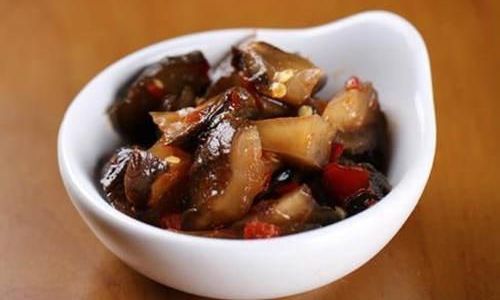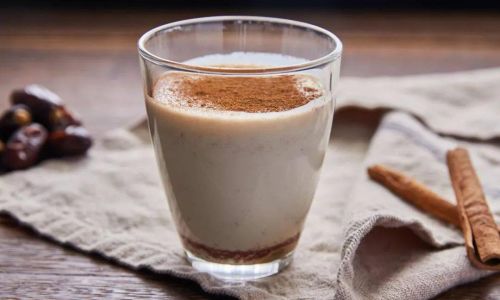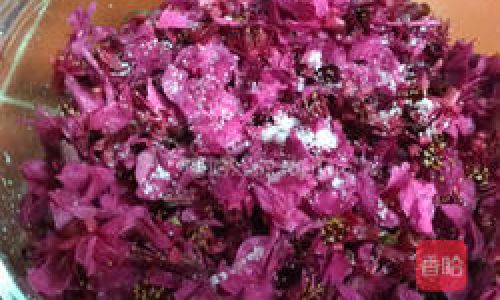Introduction
In the vast culinary landscape, pickling stands as a timeless preservation technique that not only extends the shelf life of foods but also transforms them into delightful, tangy treats. Among the myriad of vegetables that lend themselves well to this process, Jerusalem artichokes (also known as sunchokes) offer a unique flavor profile and texture, making them an excellent candidate for pickling. This tuberous vegetable, native to North America, boasts a nutty, slightly sweet taste with a hint of earthiness, which, when combined with the right pickling recipe, results in a delightful side dish or condiment. This article delves into the intricacies of how to pickle Jerusalem artichokes to perfection, ensuring they retain their crunch while absorbing the tangy, aromatic essence of the brine.
Understanding Jerusalem Artichokes
Before diving into the pickling process, it’s crucial to understand the basic characteristics of Jerusalem artichokes. These knobby, irregular roots are rich in inulin, a type of carbohydrate that promotes gut health. They have a mild, slightly sweet flavor that can vary depending on the soil and climate where they are grown. Their texture is crisp and firm, ideal for pickling as it holds up well to the acidic brine.

Choosing the Right Jerusalem Artichokes
The first step in creating a delicious pickled Jerusalem artichoke is selecting the right ones. Look for firm, unblemished roots with smooth, tight skin. Avoid those that are soft, moldy, or have cracks, as these indicators suggest they may be past their prime. Freshness is key when it comes to pickling, as it ensures the final product retains its crunch and flavor.
Preparing the Jerusalem Artichokes
Once you’ve sourced your Jerusalem artichokes, it’s time to prepare them for pickling. Begin by thoroughly washing the roots to remove any dirt or debris. Use a vegetable brush if necessary to scrub away any stubborn soil. Next, trim off any damaged or discolored parts and peel away the tough outer skin using a vegetable peeler or sharp knife. The peeling process can be a bit labor-intensive due to their irregular shape, but it’s worth the effort for a cleaner, more appealing final product.
Once peeled, slice the Jerusalem artichokes into uniform pieces. The size of the slices is a matter of personal preference, but thinner slices tend to pickle more quickly and evenly. Aim for slices that are about 1/4 to 1/2 inch thick to maintain a nice balance between pickling time and texture.
Crafting the Perfect Pickling Brine
The brine is the heart and soul of any pickled vegetable. For Jerusalem artichokes, a vinegar-based brine works best, providing the right balance of tanginess and acidity to preserve the vegetables while enhancing their flavor. Here’s a basic recipe to get you started:

- 2 cups distilled white vinegar (or apple cider vinegar for a milder taste)
- 1 cup water
- 1/4 cup granulated sugar (or honey for a natural sweetness)
- 2 tablespoons pickling salt (or kosher salt)
- 1 teaspoon whole black peppercorns
- 1 teaspoon whole mustard seeds
- 1 bay leaf
- 1-2 cloves of garlic, sliced thin (optional)
- 1 small onion, thinly sliced (optional)
In a medium saucepan, combine the vinegar, water, sugar, and salt. Heat the mixture over medium heat until the sugar and salt are fully dissolved. Add the peppercorns, mustard seeds, bay leaf, garlic, and onion (if using). Allow the mixture to simmer for about 5 minutes to allow the flavors to meld together. Remove from heat and let it cool slightly before using.
Pickling the Jerusalem Artichokes
Now that your brine is ready, it’s time to pack the Jerusalem artichoke slices into your pickling jars. Ensure the jars are clean and sterile to prevent contamination. Pack the slices tightly into the jars, leaving about a half-inch of headspace at the top.
Pour the warm brine over the slices, ensuring they are fully submerged. If necessary, use a clean, non-reactive weight (like a small glass jar filled with water) to keep the slices from floating to the surface. This is crucial as exposure to air can cause discoloration and spoilage.
Seal the jars tightly and let them cool to room temperature. Once cool, you have a few options for the pickling process:
-
Refrigerator Pickling: For quick pickles that are ready to eat within a few days, place the jars in the refrigerator. They will be ready to enjoy after about 3-5 days, with the flavor continuing to develop over time.
-
Canning: For long-term storage, process the jars in a boiling water canner. This method involves submerging the sealed jars in boiling water for a specific amount of time based on their size, ensuring a safe, vacuum-sealed environment that preserves the pickles for several months. Follow standard canning procedures for your altitude and jar size.

Tasting and Adjusting
Once your pickles are ready, it’s time to taste and adjust. Keep in mind that the flavor will continue to develop as they sit, so don’t be discouraged if they seem a bit too tangy or mild initially. If needed, you can adjust the brine’s sweetness or tanginess by adding more sugar or vinegar, respectively, before sealing the jars for final storage.
Serving and Enjoying
Pickled Jerusalem artichokes are versatile and can be enjoyed in various ways. They make a fantastic addition to salads, sandwiches, and charcuterie boards. Their crunchy texture and tangy flavor pair well with creamy cheeses, roasted meats, and grilled vegetables. You can also chop them up and use them as a relish for burgers, hot dogs, or tacos.
Conclusion
Pickling Jerusalem artichokes is a rewarding culinary endeavor that combines the art of preservation with the joy of creating delicious, unique flavors. By following the steps outlined in this guide, you’ll be able to craft pickles that are not only delicious but also beautifully preserved, ready to enjoy now or in the future. Whether you’re a seasoned pickler or new to the world of fermented foods, give Jerusalem artichokes a try—you won’t be disappointed!






0 comments